- Latest News
- Ocean Conferences
What’s happened on our blue planet since COP27?

Extreme weather events and temperature records have made headlines more frequently in 2023 than ever.
The transition into an El Niño climate pattern (explained here) compounded by worsening impacts of climate change have resulted in an unstable year of weather patterns.
This is a trend which is set to intensify in the coming years.
The more often these events happen, the less headline-worthy they are and instead they simply become part of the norm. As the world turns its attention to climate change at COP28, we must recognise weather events as part of the larger-scale changes that are happening all around us, right now.
It’s also important to celebrate the key breakthroughs for Ocean-action in 2023 and use these as a foundation to expand our future ambition at COP28 and beyond.
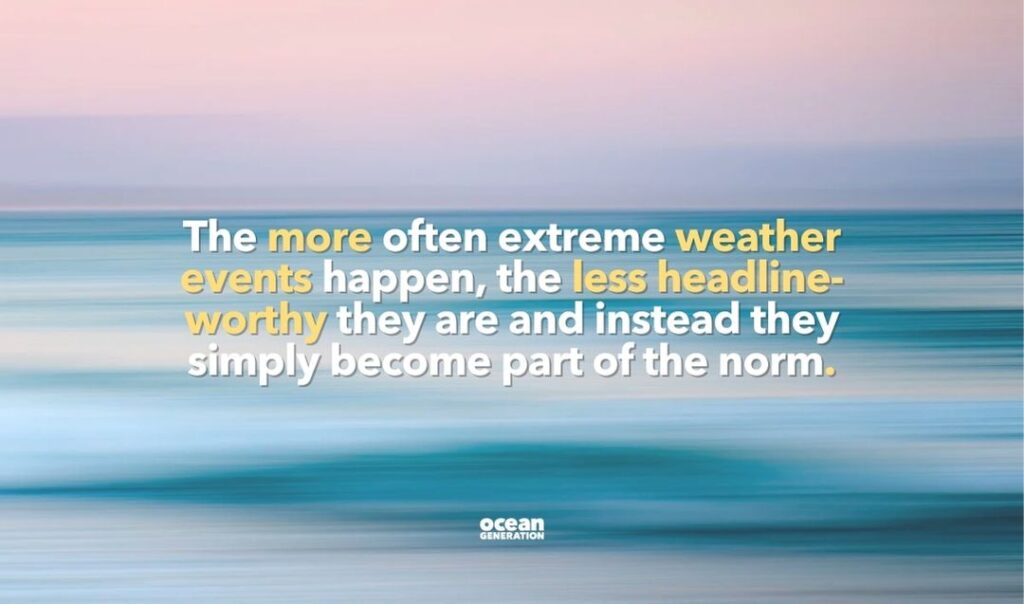
Timeline of extreme weather events and Ocean wins that have made headlines in 2023:
Our Ocean regulates global climate and is inextricably linked to these extreme weather events.
How the Ocean is linked to temperature records broken:
Over the course of 2023, we saw the warmest Northern Hemisphere summer on record and the hottest September ever recorded (average global temperature reached +0.66°C and +0.93°C warmer than the 1991-2020 baseline respectively).
Unsurprisingly, since the Ocean absorbs 90% of the excess heat associated with climate change, these broken temperature records were not limited to land.
The highest ever Ocean surface temperature was recorded in August 2023, as widespread marine heatwaves spread across the North Atlantic, Mediterranean, and Gulf of Mexico.
This unprecedented heat stress caused a severe coral bleaching event in the Caribbean, during which the highest warning level alerted to significant coral mortality

September 2023 also saw the lowest mean winter sea ice extent ever observed in the Antarctic, with maximum coverage a shocking 1.03 million km2 below the previous record low.
Scientists fear that this could mark the beginning of a long-term declining trend.
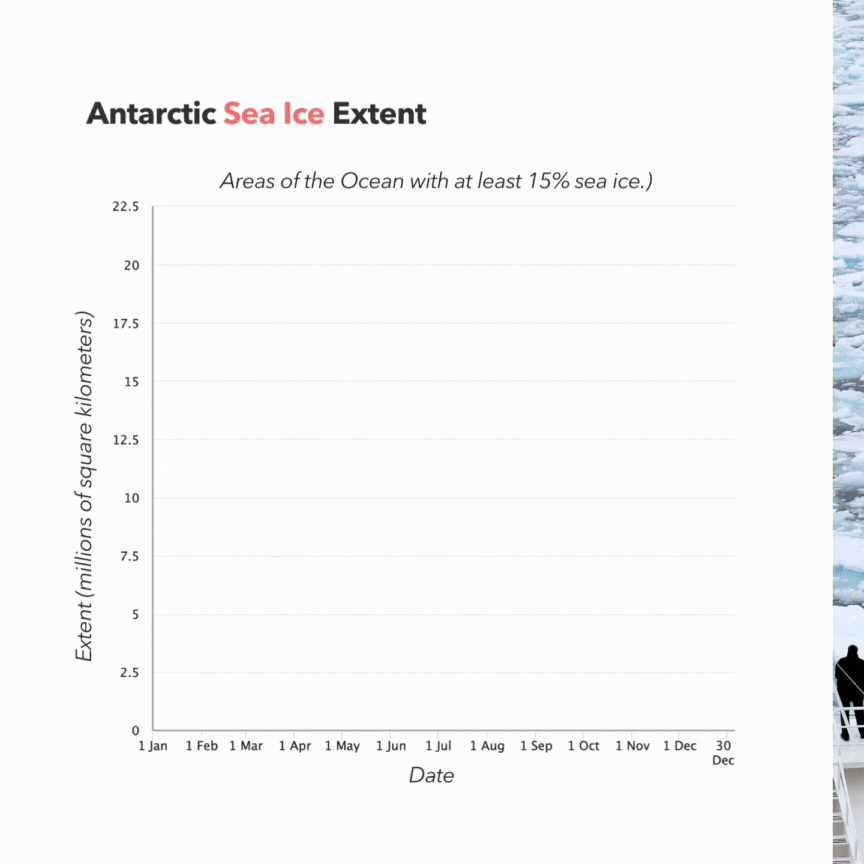
As greenhouse gases continue to accumulate in the atmosphere, our Ocean continues to warm.
Warmer water absorbs less carbon dioxide, and the Ocean’s ability to act as a buffer and protect us against rapid temperature change slows.
How the Ocean links to storms and flooding events:
Weather systems are supercharged by our warming Ocean, as warmer water supplies more moisture and thermal energy to the atmosphere.
This process drives intensified rainfall and more powerful storm and flooding events.
For instance, Cyclone Freddy made landfall multiple times across Malawi, Mozambique, and Madagascar in February 2023, killing more than 1,000 people and displacing millions.
This was the longest-lasting tropical cyclone ever recorded (34 days long), and also broke the record for the most accumulated energy based on wind strength measurements.
You’ve probably also heard of a phenomenon called ‘El Niño’ which has been linked to many extreme weather events this year.
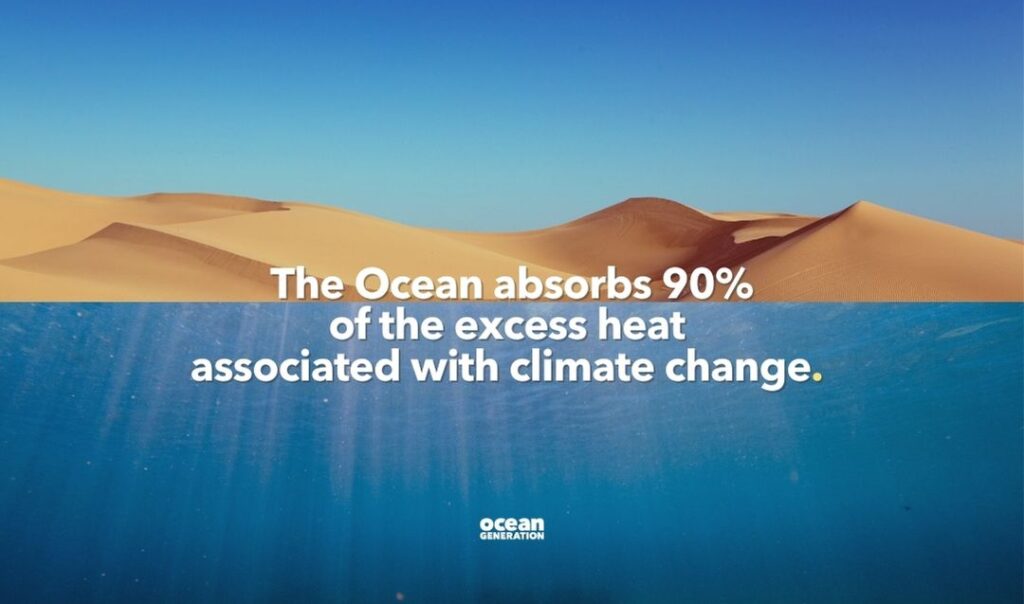
What is the El Niño phenomenon?
El Niño occurs due to the periodical weakening of trade winds in the Pacific Ocean. This pushes warm surface water towards the west coast of the Americas and drives changes in wind and weather patterns across the globe.
The surprising impact of wildfires on our Ocean:
Wildfire events are growing in frequency and intensity across the globe, partly driven by rising temperatures, strong winds and drier conditions.
In a surprising discovery, severe Australian wildfires in 2019-2020 were found to cause abnormal algal blooms in the Southern Ocean, thousands of miles downwind of the flames.
It is believed that aerosols from the fire, which contain high levels of iron, phosphorous and other minerals, were transported downwind into the Southern Ocean. These minerals, which are usually in low supply in this region, acted as a fertiliser and caused abnormal algal bloom events.
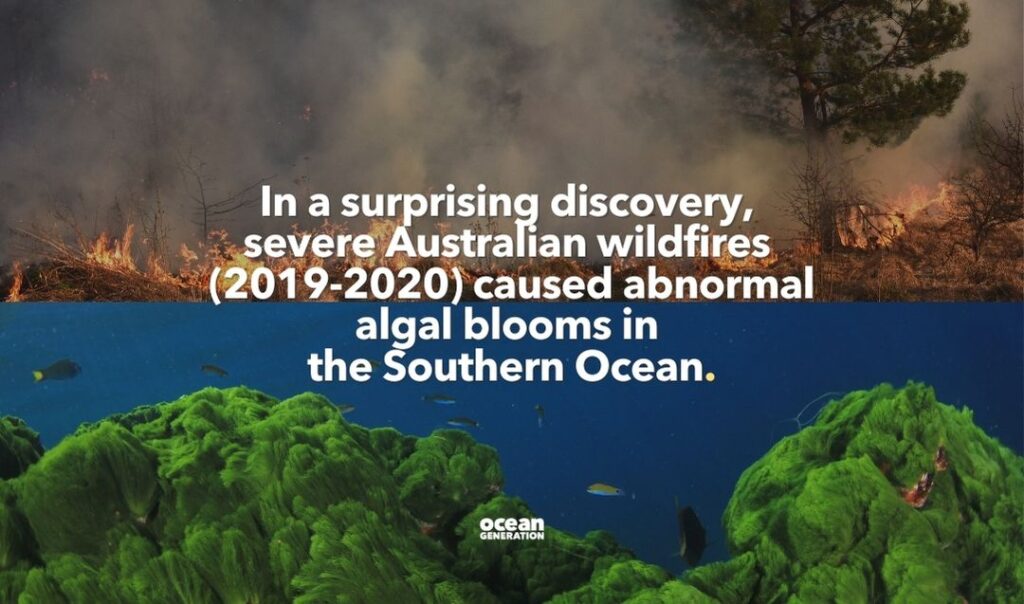
Artificial fertilisation events can disrupt natural nutrient cycling and marine photosynthesis patterns in the Ocean.
Further clues of these widespread impacts were seen in 2023. Huge wildfires in Canada burned all summer long, releasing persistent aerosol pollution over the Atlantic Ocean. Evidence of this was seen in the skies over parts of the UK in September, where incoming smoke diluted the sunshine, causing the sun to appear lilac in colour.
Only time will tell the impacts of this year’s events, but it’s clear that wildfires can have far-reaching consequences on underwater ecosystems.
Ocean wins giving us hope for the future.
2023 has been a monumental year for Ocean wins.
This year, we celebrated the agreement of the landmark High Seas Treaty, improved single-use plastic regulations, and the decision to pause deep sea mining among others. This is a sign of the ever-growing Ocean-recognition in local, regional, and global decision making.
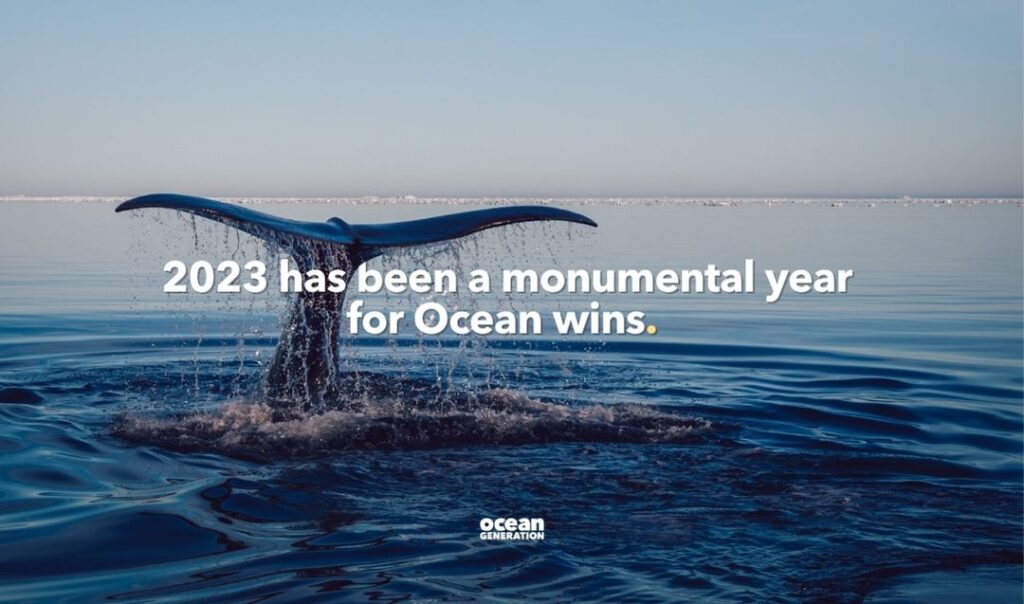
Each Ocean win moves us one step closer to effective Ocean-action, and it does not stop here. At COP28, we need to see continued momentum to protect and safeguard our Ocean into 2024 and beyond.
Stay up to date with COP28:
We’re sharing bite-sized COP updates, commitments, and Ocean wins on your favourite social platform.




